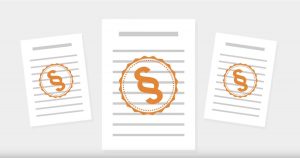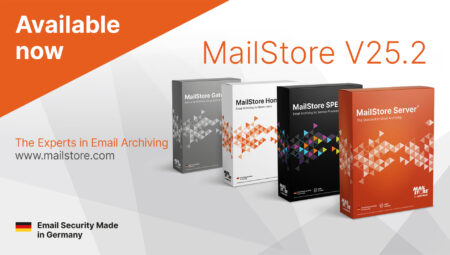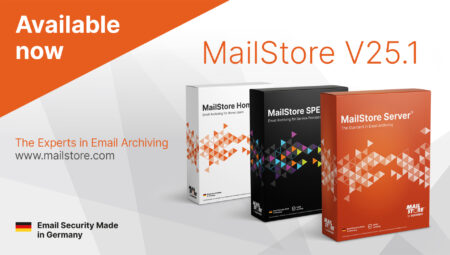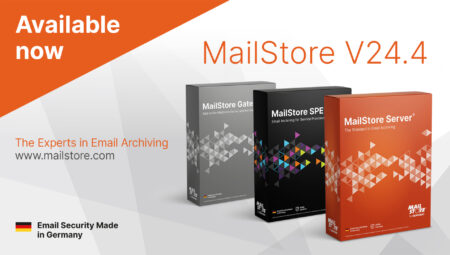3 Reasons Why You Need to Consider Your Microsoft Exchange Server Email Archiving Options

Whether you have no archiving or are simply using what’s built into Microsoft Exchange Server (on-premises), your archiving choice may be hurting the organization more than it’s helping.
The archiving of email from within Microsoft Exchange Server is a multi-faceted thing; many see the archive as a backup (which it can sort of act as one, but that’s not its’ purpose) for older email, while others see it as a means to offload unnecessary email to lower the storage load on Microsoft Exchange over time.
The reality is the archive is much more. The archive serves as a historical record of all email correspondence. It has a role in lawsuits, proving adherence to regulations, aiding in locating prior correspondence, or just helping a user find a forgotten email address of someone they previously communicated with.
The archive has the potential to become involved in many parts of operations, so it’s important to be sure the archiving methodology you have today is the correct one. But you may think whatever is in place now is just fine, but there are three reasons why you should consider your email archiving options.
Reason 1 – You May Not Be Meeting the Business Needs
Many times, IT folks start with the technology first and work their way back to business requirements. With email archiving having financial, legal, and technical implications, it’s imperative that you first understand what the business needs from archiving… and then go find the best way to implement it. For example, legal may want the email sent and received by specific roles within the organization to be held for, say, seven years, while finance wants to keep storage costs down and minimize any retention whatsoever, all while HR needs emails between two specific individuals held for 2 years in case of a lawsuit.
See? Everyone has their own needs – and it is possible to meet everyone’s requirement; you just need to start with the business needs and then determine first if your current archiving method meets those needs and if not, what solution will.
Reason 2 – Not all Archiving is the Same
There is no magic “archive this mailbox” checkbox and suddenly all the right emails are archived. The closest thing to this is Journaling within Exchange, where a copy of every email is stored. While comprehensive in scope, it may be overkill from both a storage and search perspective, making even this option less than viable. In addition to the “what” is archived, there’s also concerns around who can access the archive, is the data a read-only archive, is it secure, will it be available if Exchange is down, and more.
It’s important to list out the important criteria and expectations your organization have for an archiving solution, and to determine how each of your archiving choices meet the need.
Reason 3 – You May Be Missing the Compliance Mark
 We’ve left compliance for last, as the growing list of compliance regulations continually makes archiving that much more complex. Where one regulation mandates keeping specific email content for 5 years, another wants to keep a completely separate set of emails for 7 years. Sure, that Journaling option previously mentioned can do the trick if you keep everything for the longest duration required, but that method comes with a hefty storage and productivity price tag. It’s important to implement email archiving in a way that meets the specific needs of each regulation; with the newer laws spelling out hefty fines, the organization has to get the archiving right.
We’ve left compliance for last, as the growing list of compliance regulations continually makes archiving that much more complex. Where one regulation mandates keeping specific email content for 5 years, another wants to keep a completely separate set of emails for 7 years. Sure, that Journaling option previously mentioned can do the trick if you keep everything for the longest duration required, but that method comes with a hefty storage and productivity price tag. It’s important to implement email archiving in a way that meets the specific needs of each regulation; with the newer laws spelling out hefty fines, the organization has to get the archiving right.
Ready to Consider Your Options?
An email archive is a critical part of your messaging environment and not just a copy of old emails. Upon realizing its importance, you recognize the need to truly look into whether native options meet the need or not. Your next steps are to determine what business factors will influence your archiving needs and evaluate your archiving options – whether they rest within Exchange itself or are third-party.

To learn more about what your archiving options are and how they match up, check out the whitepaper Microsoft Exchange Server Archiving Options Compared.
Are you a customer of Microsoft 365 or are you considering moving to Microsoft 365 in the future? Then you might be interested in the white paper “The Benefits of Third-Party Email Archiving for Businesses Using Microsoft 365” from Osterman Research.






